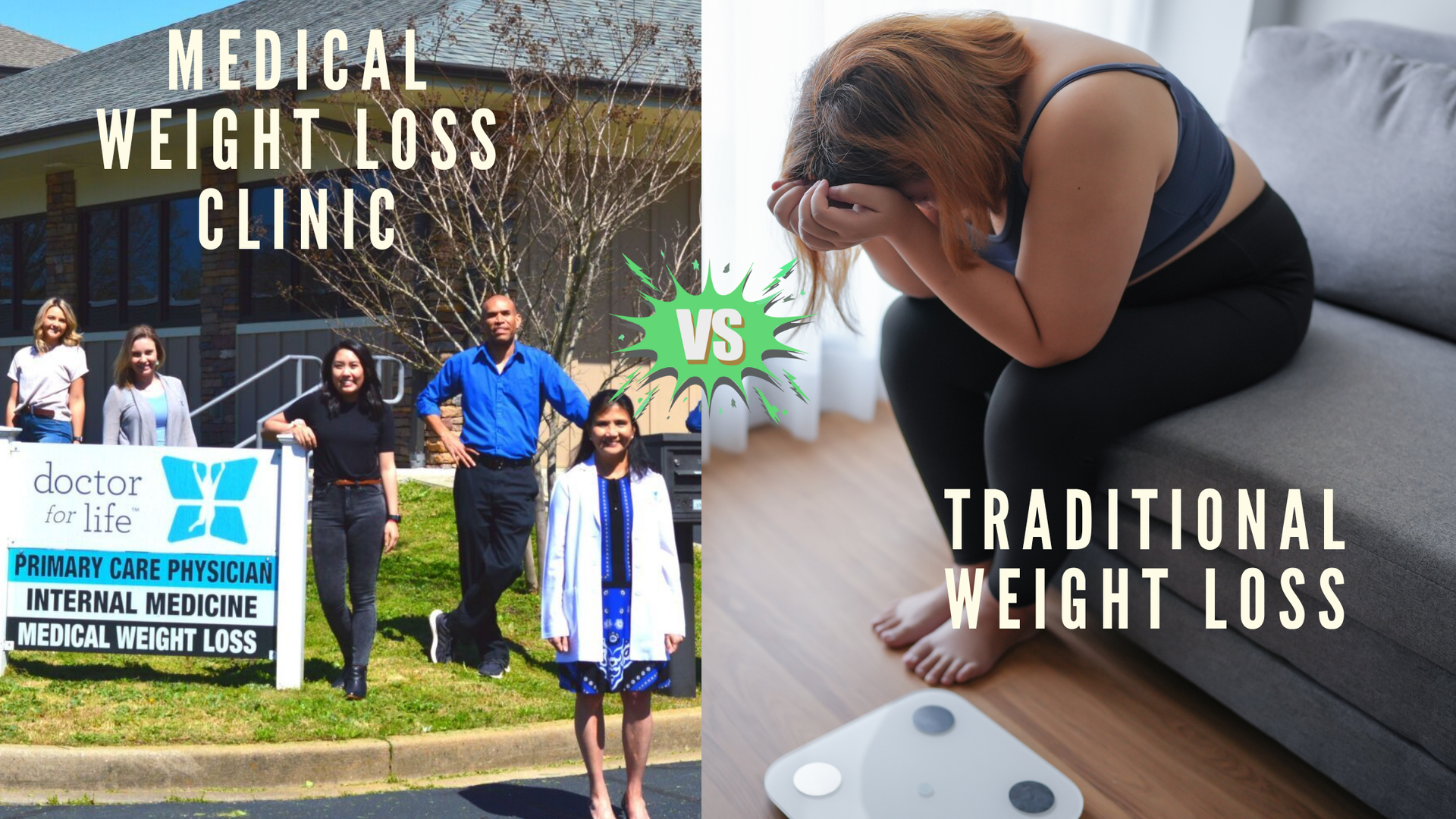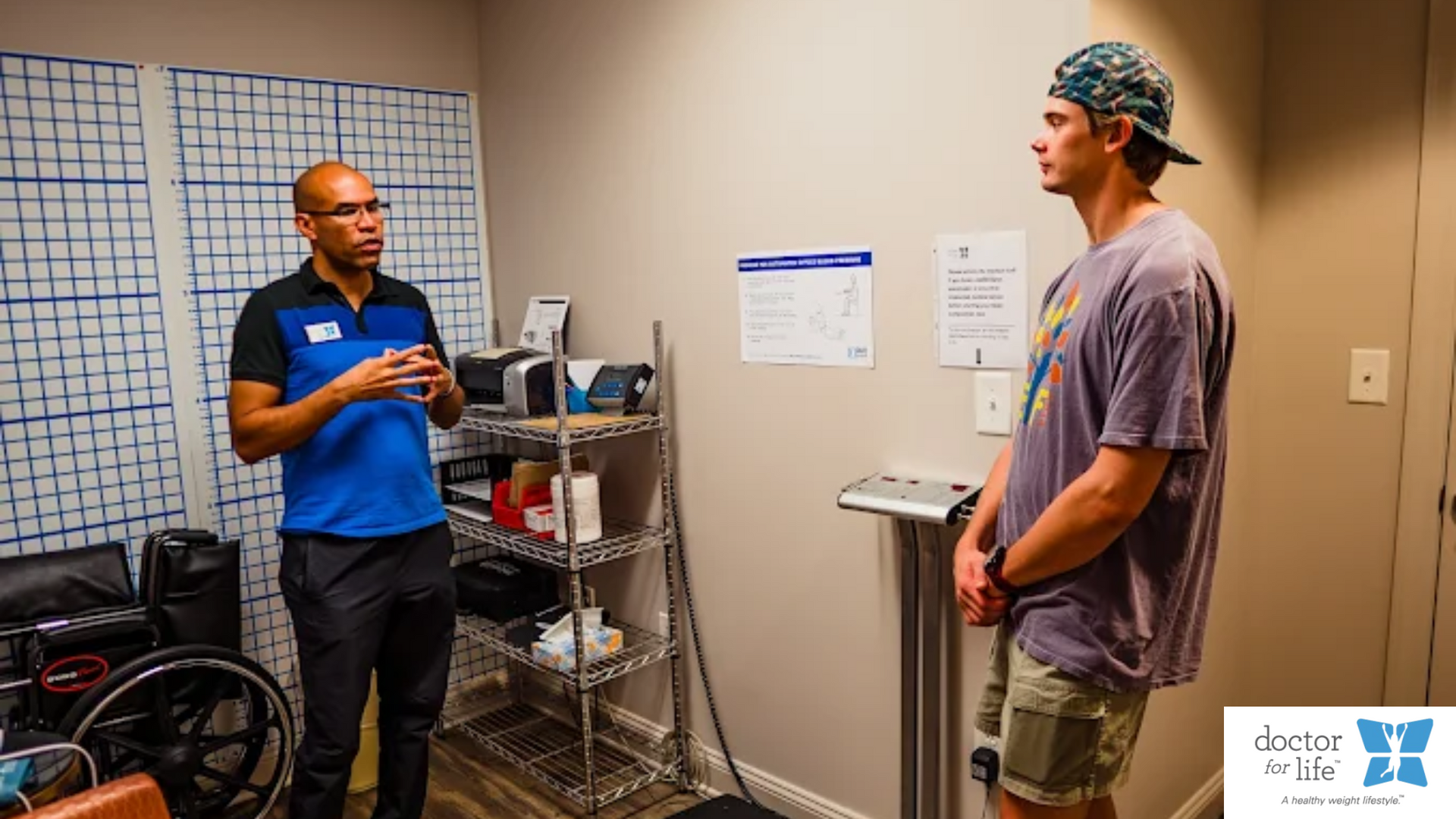Medical Weight Loss & Insurance: How Does It Work?

Weight loss is not simply a question of willpower; it requires the right support, strategy, and medical care. For countless individuals, especially those dealing with a chronic condition or experiencing stubborn weight gain, a medically supervised weight loss program can provide sustainable results that a standard diet cannot. However, one question that hinders individuals from moving forward more than any other is, "Will my health insurance help cover it?"
So let's break it all down for you clearly and simply.
What Is a Medical Weight Loss Program, Exactly?
Medical weight loss programs are regulated by healthcare professionals rather than commercial diet programs. These aren't meal kits or hardcore boot camps; they are designed based on you and the evaluation of your medical history, body composition, lifestyle, and goals. For example, Dr. For Life understands that weight management is about improving your health and quality of life, not just weight loss. Programs often include:
- Physician consultations
- Nutrition counseling
- Fitness plans
- Behavioral therapy
- FDA-approved weight loss medications
- Ongoing support and monitoring
This makes it one of the best weight loss program for women and men who are struggling with chronic conditions like obesity, diabetes, or high blood pressure.
Why Insurance Companies Are Starting to Pay Attention
The costs of being obese are really high. According to the CDC, the estimated medical cost of obesity in the U.S. in 2019 was $173 billion! Individuals with obesity incur an average of $1,861 more per year in medical costs compared to individuals with a healthy weight.
Insurance companies are coming to realize that preventive care, such as medical weight management programs, will prevent more costly treatments in the future-heart surgery, diabetes issues, etc. That's why we are seeing coverage for parts or all of these programs!
Does Insurance cover Medical Weight Loss?
Here's the frustrating but honest answer: It depends!
Coverage varies based on your insurance provider, plan type, location, and medical necessity. However, there are some consistent patterns:
Covered Services May Include:
- Doctor visits related to weight management
- Lab tests and screenings
- Behavioral therapy or counseling
- Prescription weight loss medications
- Nutrition counseling by a licensed provider
Typically Not Covered:
- Meal replacements or supplements
- Gym memberships
- Cosmetic procedures like liposuction
That said, some insurance plans may cover more if you have obesity-related health conditions like sleep apnea, high cholesterol, or Type 2 diabetes.
How to Check If You're Covered
If you're considering a program such as Dr. For Life's, here's how to determine what your insurance covers:
- Call Your Insurance Company
- Inquire about coverage for obesity treatment or weight management. Use specific terms like "medical weight management program" or "obesity behavioral therapy." Check Your Summary of Benefits
- Look for coverage under preventive services or chronic disease management. Seek assistance from the clinic if needed.
Most medical weight loss clinics, including Dr. For Life, are willing to check your insurance benefits and discuss your coverage options.
What If It's Not Covered?
If your insurance doesn't cover the entire program, don't lose hope. Here are some alternatives:
- Use HSA or FSA Funds: These pre-tax accounts can often be used to pay for qualified medical expenses, including doctor-prescribed weight loss programs.
- Request a Letter of Medical Necessity: If your doctor considers the program essential for managing a related condition, it may improve your chances of obtaining reimbursement.
- Payment Plans: Ask your clinic if they provide flexible payment options to make the program more affordable.
Real Talk: Is It Worth It?
Definitely. If you have persistent weight issues, particularly those related to medical conditions, having a professional plan can significantly impact your life. Studies indicate that medically supervised programs yield much higher success rates they are safer than a do-it-yourself diet, non-medical interventions, or over-the-counter supplements.
With a doctor collaborating with you, your plan should remain adaptable. Your weight may fluctuate. You might be adjusting medication, balancing your hormones, or eating in response to stress levels.
Final Thoughts: Your Health Is the Best Investment
Weight loss isn't solely about fitting into a smaller size; it's about feeling better, moving with ease, and reducing your risk for serious illnesses. While insurance coverage may appear to be a confusing maze, it's worth navigating if it helps you access one of the best weight loss programs for both women and men.
Whether you're insured, underinsured, or paying out of pocket, Dr. For Life's medical weight loss programs are
designed to meet you where you are and help you reach your goals.
Ready to take the first step?
Contact our team today, and we'll assist you in checking your benefits, understanding your options, and starting your
personalized medical weight loss journey toward better health.










